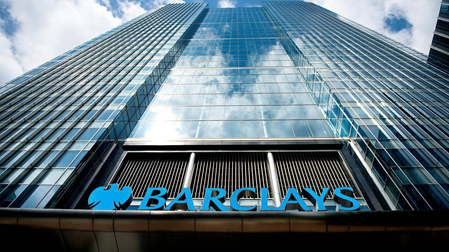If you can’t beat them, join them. This seems to be the prevailing sentiment for large financial institutions, which embrace the role of technology in finance rapidly. Whether it be through their own development or via acquisitions, large financial players are making waves in the world of fintech. These recent moves point to the growing need for better fintech services by financial providers of all shapes and sizes.

HSBC
Instead of simply investing in other fintech companies, HSBC uses its own talent to develop in-house fintech solutions. The new HSBC Global Wallet is a digital payments service the company is launching to allow cross-border transactions in multiple currencies. Users can send and receive funds in currencies, such as euros, UK pound sterling, Hong Kong dollars, Canadian dollars, Singapore dollars, Australian dollars, and Malaysian ringgit. This makes it easier than ever to deal with merchants across the globe without worrying about foreign transaction fees or currency exchange.
Additionally, HSBC has launched its own venture capital fund targeting fintech companies raising their Series A and B rounds. The fund is even more specific in focusing on financial services or business-to-business software solutions in the European and Asian markets.
Barclays

The multinational bank with headquarters in London is massive in and of itself. So, why would one of the top-20 banks in the world with over $1.5 trillion in assets be invested in fintech? Likely because it needs to keep up with the times.
In a recent move, Barclays announced a new $30 million fund aimed at women-led fintech startups. As a limited partner in the venture, Barclays will outlay the capital for European and UK-based fintech startups, and the founders will be a part of Barclays’ Female Innovators Lab. Each company will receive investments from $400,000 to $1 million.
Barclays also has bought into an initiative laid out by the UK government called the Fintech Pledge. This initiative attempts to make the UK one of the best places in the world for technology firms and financial institutions to join forces. The pledge proposes increased transparency and communication between fintech companies and their institutional counterparts.
JPMorgan Chase
One of the world’s largest banks, JPMorgan, is jumping on the digital banking train in the UK. It brought on a former chief from Barclays to lead the charge in its digital offering for customers. The company provided funding to 10X Banking, a fintech player that provides its digital banking platform to large institutions.
To better provide its customers with value-based investing, JPMorgan purchased OpenInvest. The fintech platform had already been backed by some of the fintech industry’s most coveted venture capital firms, like Y Combinator and Andreessen Horowitz. Their tech was providing automated investing products for socially conscious investors. With JPMorgan now at the helm, OpenInvest has a much larger platform on which to operate.
Banco Santander

The Spanish financial services company has been on a path toward digitization for years. Santander was one of the first financial institutions to acknowledge how blockchain technology will revolutionize financial services openly.
Back in 2019, Santander launched a $20 billion blockchain-based bond, the first of its kind at the time. As Juan Jiménez Zaballos, Group Vice President, Santander noted, “This is the a-ha moment in the Blockchain space when it comes to applying Blockchain for cash management, liquidity management, cash pooling, sweeping and topping of liquidity.”
Like other banks on this list, Santander launched a fintech venture capital fund to invest up to $400 million into fintech startups. Meanwhile, Santander’s in-house payments tech company, PagoNxt, bought a 70% share in Mercadotecnia, Ideas y Tecnología, a payments company out of Mexico that processes 31 million payments per month across 35,000 customers.
U.S. Bank
With almost 70,000 employees, U.S. Bank is the fifth-largest bank in the United States. The company has recognized that it will only compete with the big boys if it steps up its digital offerings.
In August 2021, the company announced it was acquiring Bento Technologies, a payment processing company for businesses. Shailesh Kotwal, vice-chair of payment services at U.S. Bancorp, highlighted the need for giving their customers better payment solutions. “Our focus is to provide customers with digital capabilities they need to manage their finances from anywhere, while also retaining the visibility and control that are important to managing cash flow efficiently,” said Kotwal.
Around the time it acquired Bento, the U.S. Bank also announced an ownership stake in two fintech venture capital firms: Fin Venture Capital and Commerce Ventures. The company hopes these investments will be fruitful financially and develop partnerships and a talent pipeline within the fintech space.
Embrace change
Instead of fighting against the inevitable, these financial institutions are embracing new technological innovations. In truth, it’s not like they have a choice. Fintech is changing the entire financial landscape, and the institutions that don’t accept and adapt to these improved changes will surely get left behind.


